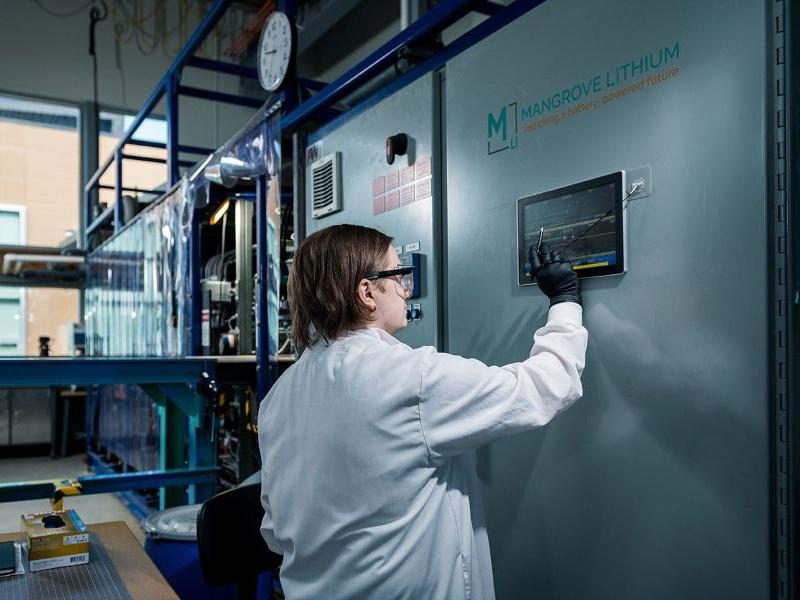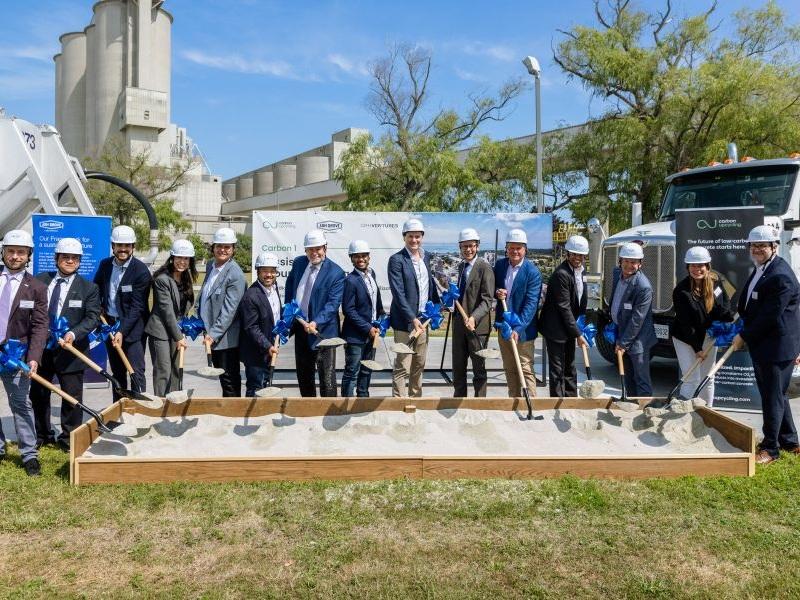
Mangrove Lithium is moving to commercialize production of a cement clinker substitute made from the discards of its lithium processing, which could help cut greenhouse gas emissions from the carbon-intensive cement sector.
The Vancouver-based company's plan is to turn its trash into treasure by offering delithiated beta spodumene (DBS) from its lithium refining operations as a clinker replacement for the cement industry. The production of clinker, the pebble-like ingredient used to make cement, is responsible for approximately seven per cent of global carbon emissions, according to CarbonRe.
Mangrove aims to provide “a green alternative for cement manufacturers to use this other byproduct that otherwise would have been a waste,” Saad Dara, the CEO of the company, said in an exclusive interview with Sustainable Biz Canada.
“So it’s achieving both goals on reducing emissions both from a lithium perspective – towards the use of (electric vehicles) – but also by helping to reduce the emissions of cement.”
Initial strength tests for cement made with DBS have been promising, he said, and the company has already attracted the interest of major industry players.
A replacement for clinker
The DBS is a byproduct of Mangrove’s lithium ore refining. For every tonne of lithium that is extracted from the hard rock, seven tonnes of DBS is produced.
Mangrove intends to give the waste a purpose. It can serve as a one-to-one substitute for clinker, Dara explained, and play a part in reducing the carbon emissions of the cement industry.
Substituting DBS for clinker will allow cement manufacturers to decrease their clinker production, which takes place in fossil fuel-powered kilns, Dara said. It will also lower costs by diminishing the fuel consumption from operating the kilns.
Based on the industry average of producing 0.8 to 0.9 tonnes of carbon dioxide per tonne of clinker, Dara said it “would be the ceiling on the amount of carbon dioxide that could be removed” using DBS.
Mangrove has a pilot facility operating in Delta, B.C. that the company will be upgrading to output larger volumes of DBS for testing. The facility can currently produce small amounts of DBS, and Mangrove intends to elevate it to tens of tonnes over the coming year.
Commercializing DBS
To commercialize the DBS, Mangrove plans to provide it to cement makers through offtake agreements. The byproduct will be generated from its planned lithium refinery in Eastern Canada, which is slated to produce enough battery-grade lithium for over 500,000 electric vehicles per year and be operating within the next three to four years.
“We would like to work closely with (cement makers) to define specification and outline a path to them essentially making this a common thing for use within their systems, within their processes,” Dara explained.
Mangrove has provided DBS samples to cement producers for tests. The companies have examined the strength of cement made with DBS, and have told Mangrove it met or surpassed their strength requirements, he said. Two of the tests were conducted in Canada, and one was done in Asia.
Mangrove intends to market its DBS to be competitive with the price the cement industry pays for clinker.
“We don’t intend on monetizing the value of the DBS beyond what clinker would cost anyways,” Dara said.
Canadians leading in cement decarbonization
Mangrove is one of numerous Canadian companies developing ways to address carbon emissions created by the cement industry.
Companies such as EnviCore Inc. and Progressive Planet are focusing on the carbon intensity of the ingredients. EnviCore’s clinker replacement is derived from mine tailings, fly ash and materials from demolished buildings, while Progressive Planet has invented an additive that can be mixed with Portland cement.
Other businesses have taken the carbon capture route. ZS2 Technologies, for example, plans to take carbon dioxide from direct air capture technologies and mineralize the greenhouse gas in cement. Carbon Upcycling Technologies integrated its carbon capture tech into an operating cement facility in Mississauga.
To address the pollution from production, Montreal-based Pyrowave showed the potential to use microwaves for clinker production, as opposed to fossil fuel-powered kilns.
While Dara stressed Mangrove’s priority remains in the lithium space, he believes the company's potential expansion into DBS could be “a good fit that we can break forward.”










